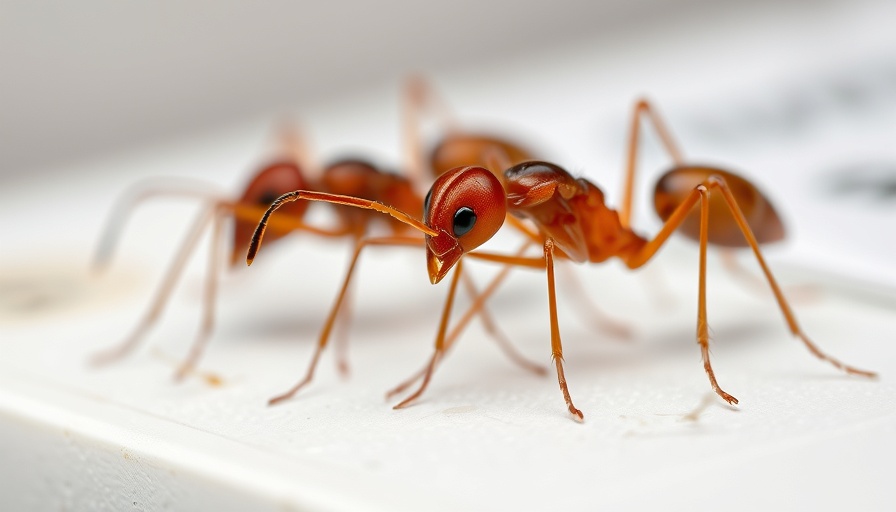
Insects in Decline: The Story Behind the Numbers
For many, the presence of insects may prompt annoyance rather than concern. But what if I told you that their decline could spell trouble for the ecosystems they inhabit and, ultimately, for us? A recent study focused on ant populations in Fiji reveals alarming trends in insect survival that are reflective of broader global patterns. As the study indicates, 79% of the endemic ant species in Fiji are in decline, a phenomenon that is becoming a grave reality across the globe amidst what some are calling an ‘insect apocalypse.’
The Human Impact: A Historical Perspective
Understanding the impact humans have had on wildlife is critical, especially on isolated islands like Fiji, where unique species have evolved. According to Evan Economo, an entomologist involved in the research, the decline began when humans first arrived on the islands about 3,000 years ago and intensified with modern agriculture, global trade, and European colonization in the past 300 years. The history of how islands like Fiji have interacted with human activity serves as a cautionary tale for other regions.
Why Should We Care?
This isn't merely about losing fascination with a natural world that includes ants and other insects. The health of insect populations is vitally linked to the functioning of habitats and ecosystems. As pests are eliminated or food sources dwindle, plants may struggle to reproduce, leading to a ripple effect through food chains. For instance, butterflies, bees, and other critical pollinators are seeing population declines similar to those among ants. This decline threatens the plants they pollinate, which provide oxygen and food for other species—including humans.
Not Just Fiji: A Global Perspective
The situation in Fiji mimics trends seen worldwide. Studies have shown that flying insects in Germany have seen an alarming drop of 75% in less than three decades, while beetle populations in the United States have declined by 83%. These statistics reflect not only local ecosystems but also the global health of our planet, sparking discussions about agricultural practices, urban development, and climate change.
Personal Responsibility: What Can We Do?
Understanding these issues encourages us to take action, both individually and collectively. Simple lifestyle changes, such as supporting local organic farms or reducing pesticide use, can make a significant difference. Community involvement in conservation efforts and local wildlife viewing can also help. It's a reminder that the more we connect with nature, the more invested we become in its well-being.
Embracing Change: Future Opportunities
The news isn't all doom and gloom, though—it opens up opportunities for innovative approaches to wildlife management and conservation. Collaborative projects that involve local communities can help bolster the resilience of insect populations. By supporting scientific research and conversing with experts, each of us can contribute to a more sustainable future for our planet.
As we navigate the delicate balance of our ecosystems, remember that even the smallest creatures have a role to play in ensuring our world's health. Let's take the lessons from Fiji and become advocates for our local wildlife—because every insect counts.
 Add Row
Add Row  Add
Add 




Write A Comment